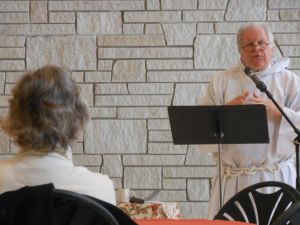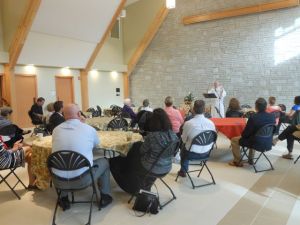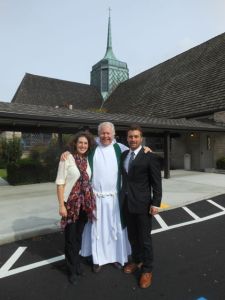Two weeks ago I went with six other international election observers
(aka my buddies) to San Isidro Labrador, a town in the department of Chelatenango
where international companies have threatened, and some have already started,
to explore and extract gold. This is a very dirty process, using and then
dumping massive quantities of arsenic into the water supply. And from my former
life, let me tell you, arsenic is REALLY hard to get out of the water once it’s
in there (think dried Play-Doh on a shag carpet – it sticks to EVERYTHING).
Mining in El Salvador threatens not only to extract resources without any
pay-back to the people, but to contaminate the country’s largest water supply,
the Río Lempa.
The election in San Isidro, though small, was the second
ever community consultation in the country. Although the past three presidents
have upheld a mining moratorium, communities are afraid that if a new president
comes into power, the moratorium would go bye-bye, as would their water supply.
And so communities are taking advantage of a constitutional right to hold their
own consultation. Us foreigners were there as election observers to uphold that
the election was clean, and that everyone who wanted to vote could. And it was…
all but three out of 250 voted NO to the mine, with two YES and one null.
Being an election observer, especially on an issue that is
so near and dear to my heart, was an exhausting but important opportunity. In
the heat of the moment (literally the sweltering, sticky heat), it ain’t all
that glamorous. You sit and watch, you write a report, you go home. But what it
meant is far bigger. These communities are following the lead of environmental
movements in Canada, in Australia, and in the U.S. (Exhibit A: Keystone
Pipeline), where in the face of political paralysis, communities take it upon
themselves to openly declare what is often the unanimous will of the people. In
El Salvador, I am not “the people,” but I can use my unique voice as a gringa to validate and affirm the voices
of those clamoring for things to be different.
You can read the full story here (with another nice mug shot of yours truly).
You can read the full story here (with another nice mug shot of yours truly).
This was just too good not to photograph.
One thing the State Department doesn't tell you... El Salvador is GORGEOUS.
And so we woke up to this. Life is rough... real rough.
Cori (roommate) is really excited.
It's like Indiana Jones but better... we get vests.
Lining up to cast the ballot.
Then you have to ink your finger so no one can vote twice.
Cori is excited... again.
One of the voting centers was held at a school... thus, tiny chairs.
Now all my grammatical errors are recorded for posterity.
For the very old, a little assistance is necessary.
Catie, our fearless leader.
Management had to come in and hold down the fort.
San José Las Flores says NO to projects of exploration and exploitation mining.
In case you can't tell, that first column is NO, the second column is YES. They're convinced the person who voted YES had dimentia.
Real fascinating stuff, I know.
They held up each vote as it was removed from the ballot box and showed it so everyone could see.
Press conference the next day to report on our findings. "It was a clean and transparent election, with an overwhelming majority against the mine."



















































